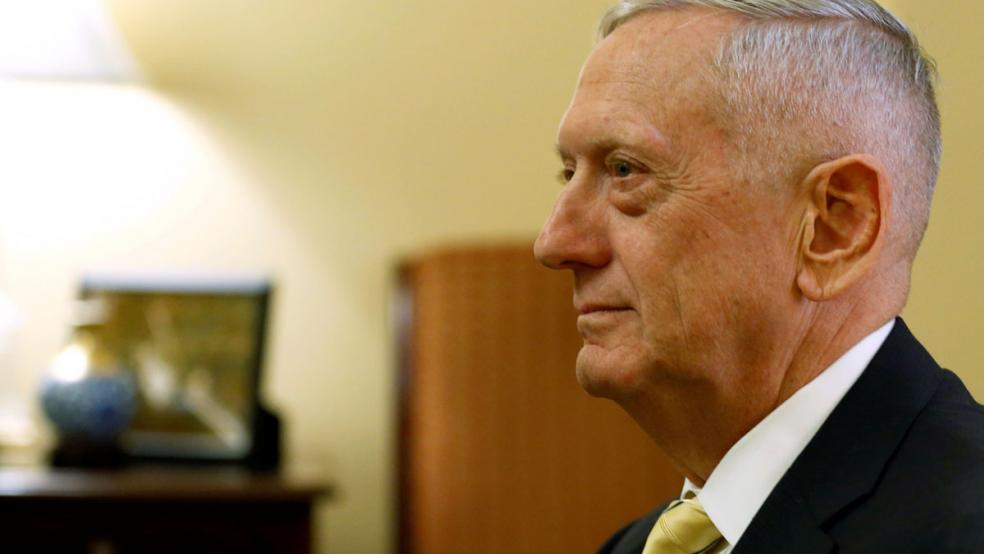It is probably too early and too strong to say that parallel governments are emerging in Washington – one disturbing, the other reassuring – but in its first week, the Trump administration is showing two faces.
Related: US No Longer a ‘Full Democracy,’ but It’s Not Trump’s Fault: Report
On one side of the Potomac, there is the never-ending carnival that took the crazy train from Trump Tower to the White House: Kellyanne Conway spouts “alternative facts” and Sean Spicer plays the calliope as the stream-of-consciousness barker goes on about mounting an investigation into how the “illegals" cost him the election, about crowd size at the inauguration, about going back into Iraq to snatch the oil, about “TheWall” and about whatever else pops into his presidential head.
On the other side, newly installed Defense Secretary James Mattis, the former Marine general whom some conservatives once talked about as a candidate to challenge Donald Trump, has hit the ground running like a gung-ho recruit on Parris Island.
In contrast to a White House said to be beset by back-biting and turf wars, Mattis appears to be thoughtfully assembling a team and making smart strategic moves. That may help offset the show on Pennsylvania Avenue that the wide-eyed world is watching -- sometimes appalled and trembling, sometimes pointing and giggling.
As the Military Times reported on Monday, Mattis has made three key appointments. Deputy Defense Secretary Bob Work, another former Marine officer and a Pentagon professional who served in the Obama administration, has been asked to stay on to smooth the transition and manage the bureaucracy, at least for the short term.
Rear Admiral Craig Faller will be the chief uniformed adviser to Mattis. A combat veteran with deep experience in the Middle East and Asia, Faller once worked for the late Senator Ted Kennedy and has dealt with lawmakers on Capitol Hill as the Navy’s chief of legislative affairs.
As his chief of staff, Mattis has appointed retired Rear Admiral Kevin Sweeney, who the Military Times said is seen as a manager familiar with the inner workings of the Pentagon.
Related: How an Important NATO Ally Is Dealing With Putin -- and Trump
More important, the Military Times quoted a Pentagon spokesman as saying Mattis had reached out to NATO allies, including the NATO secretary general and the British and Canadian defense ministers. CNN said he reassured them of America’s “unshakeable commitment” to the alliance.
That was no doubt intended to counter-balance Trump, who rattled NATO with talk during the campaign about alliance partners not paying their fair share and has repeatedly offered warm words for Russian President Vladimir Putin, NATO’s chief antagonist.
When asked about Mattis’ outreach, Press Secretary Spicer said on Tuesday: "I think that Secretary Mattis and others have some ideas about how to reform and make organizations like NATO more effective and benefit the amount of money that the United States is putting [in] whether it's NATO or the UN or other organizations like that. But I think [Trump] is not pleased in terms of what he sees in terms of the U.S. contribution and the output it's getting."
Earlier this week, Trump announced that the U.S. would withdraw from the Trans-Pacific Partnership as he promised during the campaign, but as numerous news stories and commentaries have pointed out, one of the goals of TPP was to counter the influence of China. By pulling back from the 12-nation trade deal, the new President gives an opening to Beijing, whom he also repeatedly railed against on his way to the Oval Office.
Almost on cue, it was announced that Mattis will visit Japan and South Korea next month in his first official visit outside the U.S. as Defense Secretary. The purpose, according to The Financial Times, is to reassure America’s Asian allies.
In his first memo to the Defense Department, issued on Inauguration Day, Mattis also signaled that he would work closely with the Intelligence Community, which took a beating from Trump both as a candidate and as the president-elect. Even a conciliatory visit by the president to the CIA wound up hitting an off note, with Trump standing in front of a wall commemorating fallen and largely unsung officers to complain about the media distorting attendance figures for the inauguration.
With former Republican congressman Mike Pompeo, a West Point graduate, now confirmed as CIA director and the nomination of former ExxonMobil CEO Rex Tillerson to be secretary of state moving forward, Mattis may soon have other grown-ups governing, too. But Tillerson has no Washington experience and won’t be immediately up to speed.
Related: 9 Things to Know About Trump's Pick for CIA Director, Mike Pompeo
Pompeo, on the other hand, was a member of the House Intelligence Committee and should be more immediately ready to stand with Mattis, who in his memo called the military and the Intelligence Community “the sentinels and guardians of our nation.”
At least someone will be watching America’s back while Trump and his troupe are careening toward the formation of a government.





